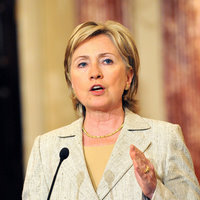As an Army brat who grew up traveling the world, I've witnessed first-hand both the power and sense of hope that the United States projects around the globe. These qualities stem from both the might of our military as well as the less tangible characteristics of our diplomatic and compassionate efforts.
In decades past, the roles of the State Department and Defense Department were often considered to be parallel and discrete. State negotiated treaties and engaged in diplomatic and aid missions around the globe, whereas Defense was brought to bear when words failed to suffice. Despite being complementary, these elements of U.S. strategy were often poorly coordinated.
Since the end of the Cold War, the profile of State has changed dramatically. The U.S. missions in Afghanistan and Iraq, as well as in the nearby recruiting grounds for insurgents fighting us in those theaters and elsewhere, have brought into sharp focus the need for much closer coordination between the civilian and military elements of U.S. foreign policy.

